Quiet Mind Weighted Pillow Review
This weighted pillow can soothe your stress and anxiety
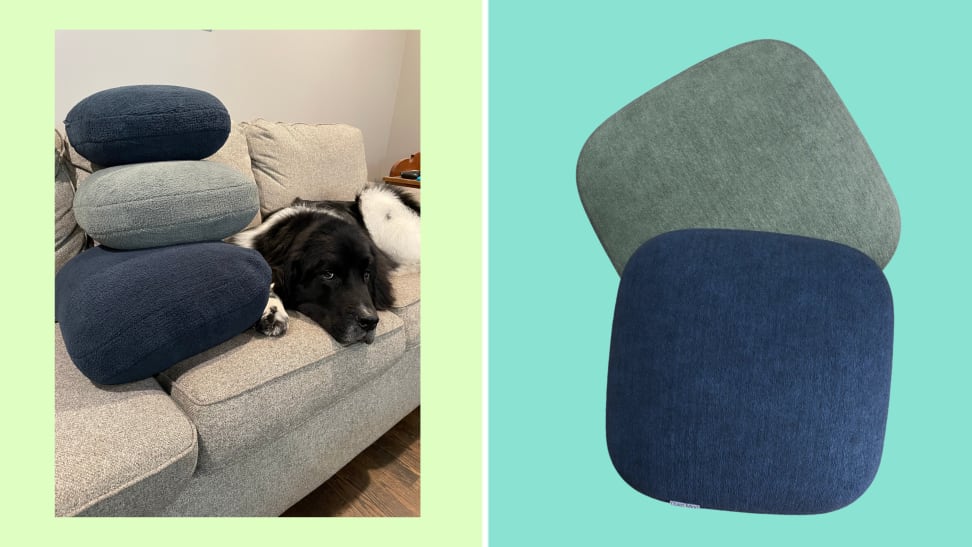 Credit:
Reviewed / Anna Wenner
Credit:
Reviewed / Anna Wenner
Recommendations are independently chosen by Reviewed's editors. Purchases made through the links below may earn us and our publishing partners a commission.
-
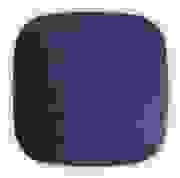
Quiet Mind Original Weighted Pillow
Pros
-
Calming
-
Durable construction
-
Easy to maneuver
Cons
-
May be prohibitively expensive
-
Zippers and tags may irritate
-
Covers aren't very vibrant
-
Inclusive marketing misses
-
As a woman with ADHD, I was incredibly intrigued by the concept of Quiet Mind Weighted Pillows (available at Quiet Mind) .
I jumped on the weighted blanket train years ago and have loved mine ever since, so these pillows seemed like a new take on a familiar comfort. Though I love using my weighted blanket on my bed, I rarely take it other places because it’s so awkward to carry. The weight, combined with its fluid shape, means the likelihood of injuring my (already not very good) back is high, and it’s rarely worth the risk.
I had the opportunity to test all three sizes of Quiet Mind’s pillows, and in order to get the best data possible, I pulled in several of my neurodivergent friends to join me in my tests. Read on to find out what we loved (and loved a little less) about these pillows to determine whether you should get one for yourself.
What is Quiet Mind?
Quiet Mind was founded by Mikey Goldman as a way to combat his own ADHD symptoms. He found he liked the compression of weighted blankets but that they were often bulky and inconvenient. When he couldn’t find a better solution, he created one with what the company describes as “The Original Weighted Pillow.”
Why use a weighted pillow?
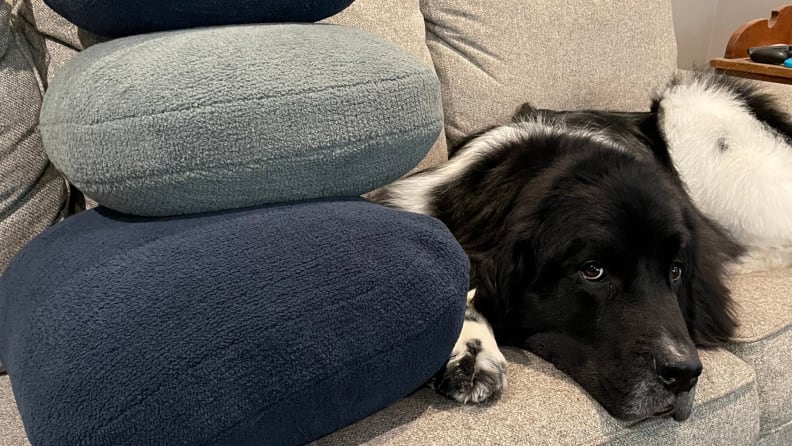
Though every pillow size had its benefits, much like Goldilocks, the middle one is “just right” for those who only want one.
Weighted pillows can provide many of the same benefits as other weighted and compression items. They’re particularly useful for those with ADHD, autism, and anxiety though they can have calming benefits to most people who use them.
Weighted pillows work by providing Deep Pressure Stimulation (also known as Deep Pressure Therapy), which has been shown to create a more relaxed state in most people, particularly those who are neurodivergent. Pressure-focused items like these can help users get a good night’s sleep and encourage your body to rest. They can even be a great way to combat loneliness.
What I like about Quiet Mind Weighted Pillows
Holding the pillow is immediately calming
I often pull in my fellow neurodivergent friends as test subjects for products like this, and this pillow received most positive response from the group to date. When I first showed them the pillow, everyone chuckled and showed the skepticism I myself felt when I first learned about the concept.
However, after holding the pillow for less than a minute, two different people were looking for a link to buy their own, and the rest were conspiring to get a shared-custody pillow for our weekly game night. The excitement didn’t wane as the night progressed—if anything, we all became more attached.
I was surprised by how calm I actually felt while using the pillows. While I often find myself needing to move around or occupy my hands during our weekly board game night, while the pillow was with me, I felt perfectly content to stay still. I’d expected to enjoy the feeling of the weight, but I’m impressed by just how calming and soothing its sensory-focused design was and how much it helped me focus.
Product has a durable design
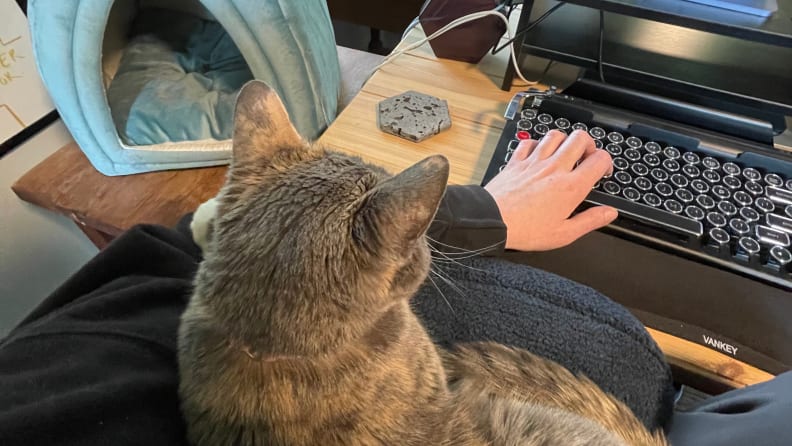
The smallest pillow fit neatly between me and the desk even when I sat in odd positions. The pillow and cat were about the same size and weight, and both fit thanks to my cat’s persistence.
The design of this pillow was great. The fabric was soft but seemed durable enough to hold up to pets and people interacting with it often. The size and shape are extremely satisfying, providing a pleasing amount of weight while still being the perfect compact shape to hug. The large pillow was perfect for holding vertically in my lap with my arms around it or chin resting on it and was also a great size for lying horizontally in my lap while playing board games at a table.
I was skeptical that the smaller throw pillows would provide enough weight to be calming, but I was pleasantly surprised by their effect. Each has been sized well to suit different situations, and in an ideal world, I’d have all three floating around my house to use as needed.
The smallest pillow was nice to have at my desk at home (though my cat resented its presence where she normally likes to sit), and the medium one provided some heft without being quite as bulky as the largest design. If you want a pillow but don’t know which to buy, my group and I recommend the Goldilocks method of choosing the middle option to get the one that’s “just right” for most scenarios.
It’s worth noting that these Quiet Mind pillows lack the convenience of a weighted blanket when it comes to doing activities that aren’t at a table. There wasn’t really a way to put the pillow on me while using my laptop or playing video games unless I left it on stretched out legs, which started to cause physical discomfort and strain to my back and legs. However, for those bad depression days when all I wanted to do was hug something and watch TV, the size and shape were absolutely perfect and deeply comforting.
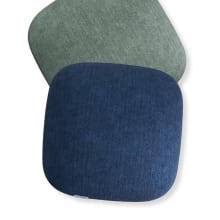
The Quiet Mind Weighted Pillow may help combat anxiety, stress, and distractions.
From $179 at Quiet MindAll sizes are easy to move
People with ADHD often hate sitting still, and this can take many forms. For some, it might look like pacing or needing to stim, but for others it might just mean switching positions or environments frequently while focusing. Whatever your preferred movement method, a heftier item like a weighted blanket can be a pain to move with you. (And for those like me who have common comorbidities like back problems, the pain can often be literal.)
Moving the pillows around the house was a breeze, and every person who tried them had no problem passing them back and forth. If you have trouble with even small amounts of weight, look closely at your options before purchasing. However, unlike a trickier item to balance—like a weighted blanket—the compact nature of these pillows makes maneuvering easy, and their appearance offers a true representation of how simple they are to carry.
What I don’t like about Quiet Mind Weighted Pillows
These pillows are pretty pricey
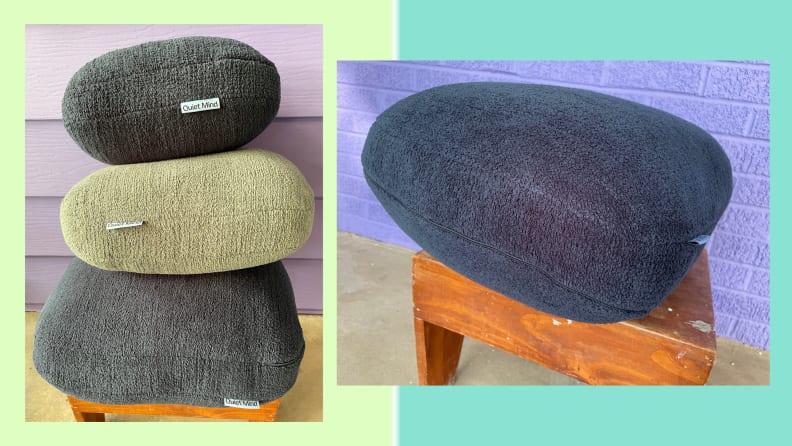
Weighted pillows work by providing Deep Pressure Stimulation (also known as Deep Pressure Therapy).
By the time I finished testing this pillow, every single person who held it was ready to buy their own. When they saw the $179 starting price, though, that excitement died to a sad sort of mourning.
Five people who had seconds before been ready to take the plunge were left staring at the table in disbelief. A few were even afraid to hold the pillow after looking up the price, knowing I’d have to return it after the test (and not wanting to risk the hefty $200 price tag if it somehow got damaged).
For a premium product this price isn’t unreasonable. It’s on par with high-end weighted blankets (though with notably far less total material). Quiet Mind positions itself as the best weighted pillow on the market, and that is likely the case. However, for the average shopper, the $179 to $199 price tag will likely be a little too high for one to spend on a single pillow.
Zippers and tags may be sensory irritants
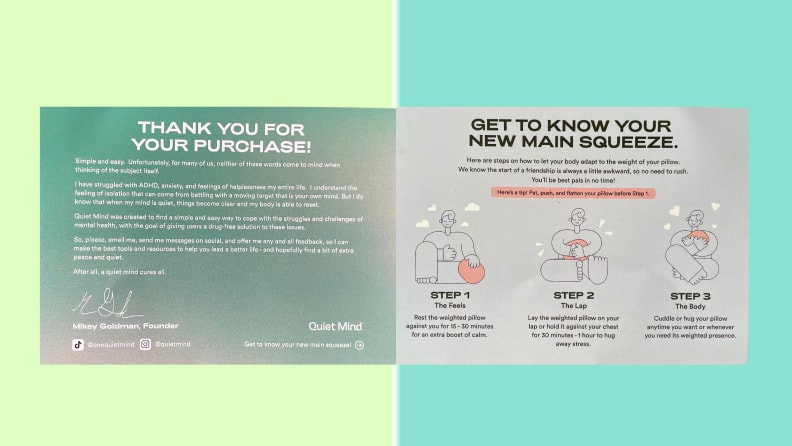
This paper was included with each pillow, providing a welcome message from the founder and a list of instructions for using the product.
Given that sensory sensitivity is common in neurodivergent individuals, I was surprised by the presence of an uncovered zipper and a non-removable tag. The zipper extends around one entire side and partially onto two other sides, meaning its texture actually touches three out of four of the pillow’s surfaces. Odder still, the tag is on a different side than the zipper, meaning many neurodivergent users will want to avoid that side as well when resting their head or arms.
Even as someone who is only mildly bothered by tags, I found them getting in the way often, and became frustrated while trying to position the pillow so that both the tag and zipper weren’t touching me. Though these details may seem to be (quite literally) small, to many of the users this pillow was designed for, they could very well be dealbreakers.
Pillow covers aren't as vibrant as they appeared
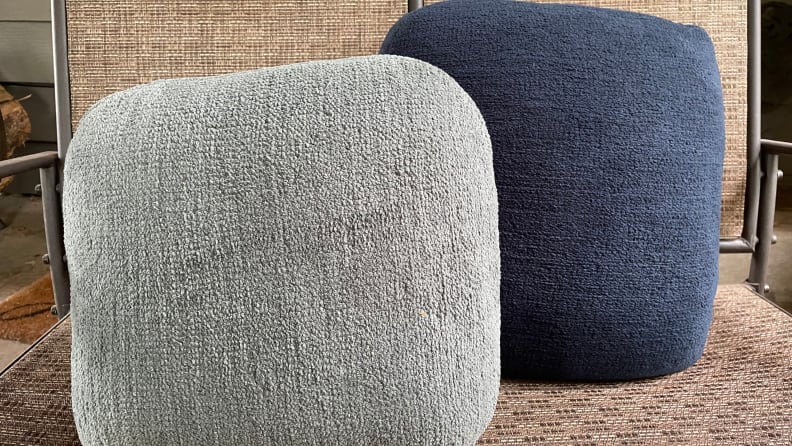
The colors of the pillows weren’t as vibrant as pictured on the website, but they still looked nice.
The pillow covers weren’t quite as vibrant in person as they appear on the website, though they’re pleasing colors all the same. If you’re looking for a subtle addition to your home décor, they’re still very strong.
As a person with pets, a washable pillowcase is a must, so I was pleased to see these pillows could be machine washed and dried. I followed the tag instructions carefully to see how they would fare. While overall the washing went well, there was some visible pilling when the cover came out of the dryer. It was only in a few spots, but it did make me wonder how durable the cover would be over time.
For those who are especially sensitive to smell, be aware that, out of the box, the two smallest pillows had a mild chemical odor to them, particularly the green pillow. While for some of our testers the smell wasn’t noticeable until pointed out, for one of the smell-sensitive participants, it was an immediate turn off.
Though the covers ended up as one of the “cons” ultimately, I want to add a huge caveat that the fabric of the pillow covers was incredibly soft and pleasing to hold. Individually, the issues with the cover were small and even together they weren’t a major sore spot for me or most of my fellow testers. However, because of the hefty price tag for this premium pillow, the shortcomings are still worth a mention.
Advertising feels less than inclusive
While the advertising practices of the brands we test have no bearing on the products themselves, there were a few noteworthy missteps that frustrated me as a neurodiverse tester. These pillows are trumpeted as an all-natural alternative to ADHD medications, and that’s a great goal to have considering not every person with ADHD can take and/or is helped by currently available medications.
However, as a woman with ADHD who is greatly helped by medications—and who knows many others who are the same—the way that Quiet Mind initially went about explaining its product left a bad taste in my mouth. While I did find the pillow calming, it certainly wasn’t soothing enough for me to toss out my meds, and some of the perceived judgment in Quiet Mind’s mission statement on its website quickly soured what was overall a great testing experience.
The same can be said for ads on product pages, which feature exclusively white models and only male children. It goes without saying that neurodiversity impacts a wide range of people and ethnicities, but the company’s portrayal doesn’t reflect these details as much as it could. For a product made to be inclusive, its marketing shouldn’t leave so many groups feeling left out.
To the brand's credit, Quiet Mind CEO Mike Goldman reached out to address some of these concerns shortly after first publication. In summary Goldman suggested the weighted pillow is not meant to replace medication and is instead "a tool in the user's toolbox in defense against ADHD, anxiety, mental health, or other similar issues."
In an attempt to correct further misinterpretation, the prior wording on the mission statement page has been updated to more clearly reflect this idea.
Should you buy a Quiet Mind Weighted Pillow?
Yes, if you can stomach the price
If you have the money to spend, the Quiet Mind Weighted Pillow is well worth the buy. It performs exactly as advertised, is high quality and well made, and is sure to be a hit with most who come in contact with it.
Its subtle design and varying sizes and colors lets it blend with other home décor, and it’s a welcome addition to the weighted comfort item space. If you adore weighted blankets and other compression items, these are well worth the try.
All of that being said, if money is tight for you, the comfort Quiet Mind pillows provide isn’t worth the extra stress of trying to fund the purchase. My friends and I have a decent income, yet none of us could justify the cost despite our love of the product itself.
The Quiet Mind Pillow is a great premium product for those who can afford it, but it may be out of reach for many.

The Quiet Mind Weighted Pillow may help combat anxiety, stress, and distractions.
From $179 at Quiet Mind


